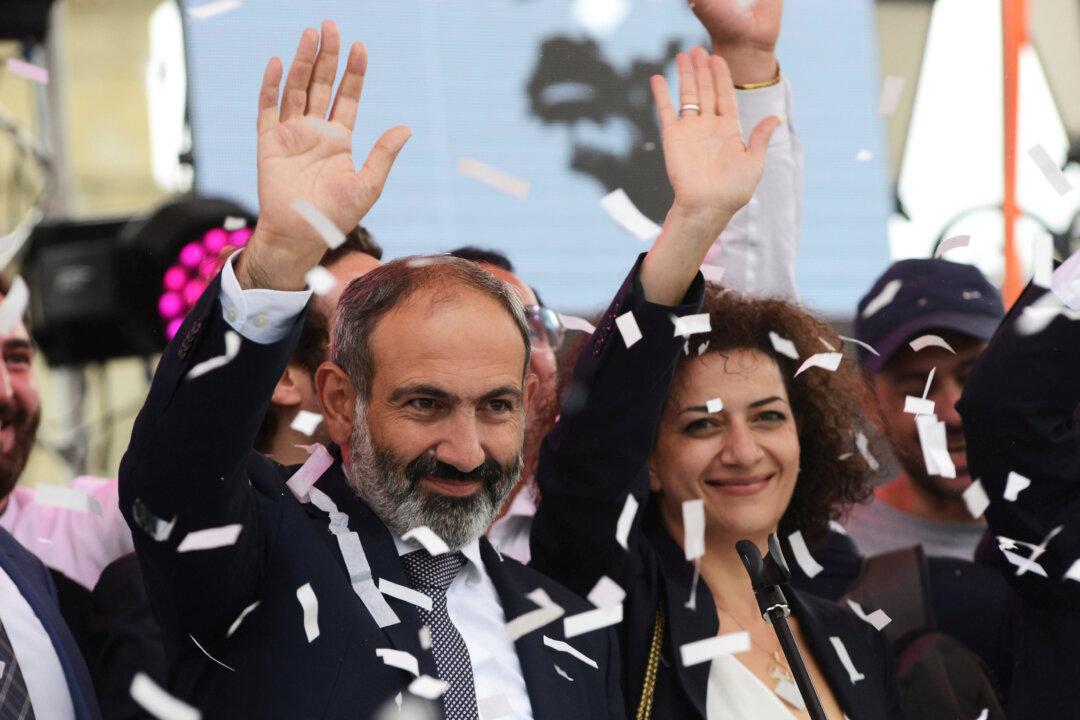YEREVAN—Opposition leader Nikol Pashinyan was elected Armenia’s prime minister on Tuesday, capping a peaceful revolution driven by weeks of mass protests against corruption and cronyism in the ex-Soviet republic.
Moscow, which has a military base in Armenia, is wary of an uncontrolled change of power which would pull the country out of its orbit, but Pashinyan has offered assurances that he will not break with the Kremlin.





